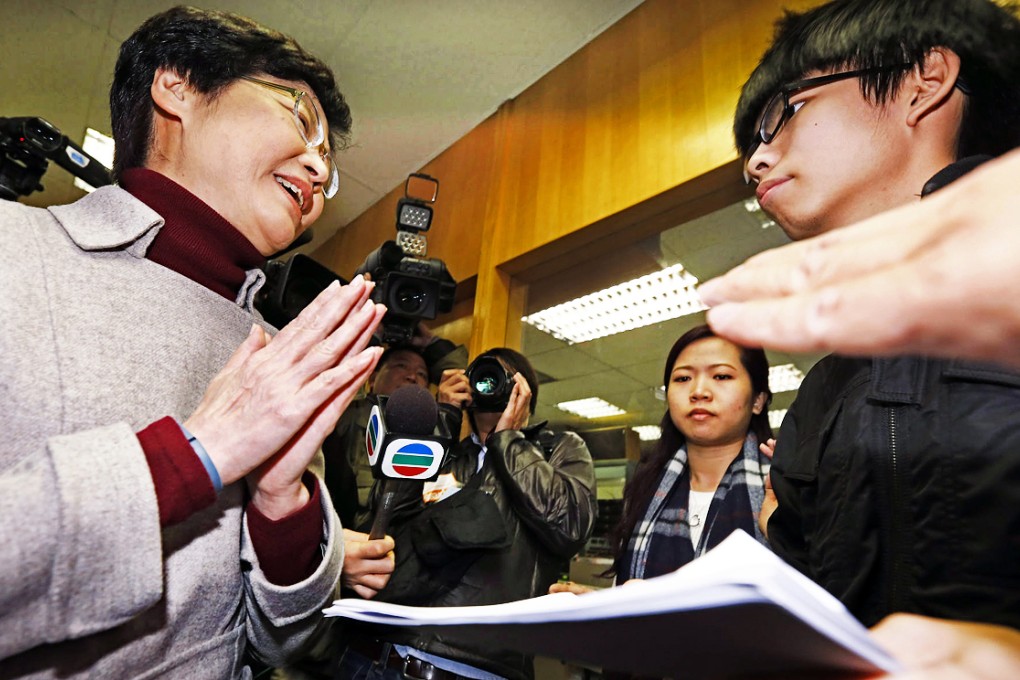Video | Face off: student leader Joshua Wong ambushes Carrie Lam over election reform proposal
Joshua Wong Chi-fung confronted Chief Secretary Carrie Lam in a rare face-to-face encounter this morning, as they passed each other in the corridor of a radio station’s offices.

Student activist Joshua Wong Chi-fung confronted Chief Secretary Carrie Lam Cheng Yuet-ngor in a rare face-to-face encounter this morning, as they passed each other in the corridor of a radio station’s offices.
Surrounded by journalists, Wong stopped Lam in the hallway at Commercial Radio and tried to give her a copy of the liberal studies’ assessment criteria. That was a reference to his criticism that the government’s public sentiment report released this week did not even qualify as "a piece of liberal studies homework" because it had distorted public demands for genuine democracy.
But Lam stuck rigidly to the government line during a brief exchange:
Wong: Secretary [Carrie] Lam Cheng [Yuet-ngor], I want to give you a report. Since you wrote a ‘public sentiment newspaper cutting’, I have especially [prepared a copy] of the assessment criteria for the secondary school liberal studies subject homework.
It says [student would score low points if they] "show a low level of competence in reflection on the enquiry", "communicate and analyse the findings from limited perspectives related to the issue concerned", and "with less than appropriate methods". I think this set of liberal students assessment criteria for secondary school pupils’ [homework] is a good reference for your "public sentiment newspaper cutting". I hope you can take this.
I also want to ask why did you conclude in the report that it is a common aspiration among Hongkongers to implement a system of universal suffrage based on the National People’s Congress’s 831 (August 31) framework? Do you think this is distorting facts?
Lam: The public sentiment report was compiled purely, I think you can also remember, because in preparing for the dialogue with the Federation of Students’ (in October), we have heard many people and students representatives suggesting that since something had happened after a decision was made on August 31, should we file a report to the central government? That was the suggestion at that time ...